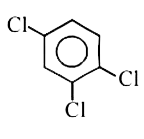Which of the following Maxwell's equation is valid for time varing conditions but not valid for static conditions:
∮→D⋅−→dA=Q
∮→B⋅→dl=μ0I
∮→E⋅→dl=∂ϕB∂t
∮→B⋅→dl=0
The correct Answer is:C
To solve the question regarding which of Maxwell's equations is valid for time-varying conditions but not for static conditions, we can analyze the four Maxwell's equations in the context of static and dynamic fields.
1. Understand Maxwell's Equations:
Maxwell's equations consist of four fundamental equations that describe how electric and magnetic fields interact. They are:
- Gauss's Law for Electricity: ∇⋅E=ρϵ0
- Gauss's Law for Magnetism: ∇⋅B=0
- Faraday's Law of Induction: ∇×E=−∂B∂t
- Ampère-Maxwell Law: ∇×B=μ0J+μ0ϵ0∂E∂t
2. Identify Static and Time-Varying Conditions:
- Static Conditions: These refer to situations where fields do not change with time. In static conditions, the partial derivatives with respect to time are zero (∂E∂t=0 and ∂B∂t=0).
- Time-Varying Conditions: These refer to situations where fields change over time, meaning the partial derivatives are not zero.
3. Analyze Each Equation:
- Gauss's Law for Electricity: Valid under both static and dynamic conditions.
- Gauss's Law for Magnetism: Valid under both static and dynamic conditions.
- Faraday's Law of Induction: ∇×E=−∂B∂t is valid only in time-varying conditions (not valid in static conditions since ∂B∂t=0).
- Ampère-Maxwell Law: ∇×B=μ0J+μ0ϵ0∂E∂t is also valid only in time-varying conditions (not valid in static conditions since ∂E∂t=0).
4. Conclusion:
The equations that are valid for time-varying conditions but not valid for static conditions are Faraday's Law of Induction and the Ampère-Maxwell Law. However, the question asks for one specific equation. Since Faraday's Law is often the most recognized in this context, we can conclude that:
Final Answer: The correct option is Faraday's Law of Induction.
Maxwell's equations consist of four fundamental equations that describe how electric and magnetic fields interact. They are:
- Gauss's Law for Electricity: ∇⋅E=ρϵ0
- Gauss's Law for Magnetism: ∇⋅B=0
- Faraday's Law of Induction: ∇×E=−∂B∂t
- Ampère-Maxwell Law: ∇×B=μ0J+μ0ϵ0∂E∂t
- Static Conditions: These refer to situations where fields do not change with time. In static conditions, the partial derivatives with respect to time are zero (∂E∂t=0 and ∂B∂t=0).
- Time-Varying Conditions: These refer to situations where fields change over time, meaning the partial derivatives are not zero.
- Gauss's Law for Electricity: Valid under both static and dynamic conditions.
- Gauss's Law for Magnetism: Valid under both static and dynamic conditions.
- Faraday's Law of Induction: ∇×E=−∂B∂t is valid only in time-varying conditions (not valid in static conditions since ∂B∂t=0).
- Ampère-Maxwell Law: ∇×B=μ0J+μ0ϵ0∂E∂t is also valid only in time-varying conditions (not valid in static conditions since ∂E∂t=0).
The equations that are valid for time-varying conditions but not valid for static conditions are Faraday's Law of Induction and the Ampère-Maxwell Law. However, the question asks for one specific equation. Since Faraday's Law is often the most recognized in this context, we can conclude that:
Topper's Solved these Questions
Similar Questions
Knowledge Check
Which of the following relations is valid for Boolean algebra :-
AA(B+¯¯¯B)=ABA+AB=ACA+0=ADallWhich of the following option is valid for zero reaction?
At1/2=32t1/4Bt1/2=43t1/4Ct1/2=2t1/4Dt1/4=(t1/2)2Which of the following Maxwell's equations have sources of →E and →B?
A∮S→E.→ds=q∈0B∮S→B.→dl=μ0I+μ0∈0ddt∮S→E.→dsC∮S→E.→dl=−ddt∮S→B.→dsD∮S→B.→ds=0
Which of the following statements is valid for a compound ?
View SolutionWhich of the following statements is valid for a compound ?
View SolutionWhich of the following relation is valid in Boolean algebra :-
View Solution
Which of the following statements is valid for the above compound?
View SolutionThe equation E=pc is valid
View Solution